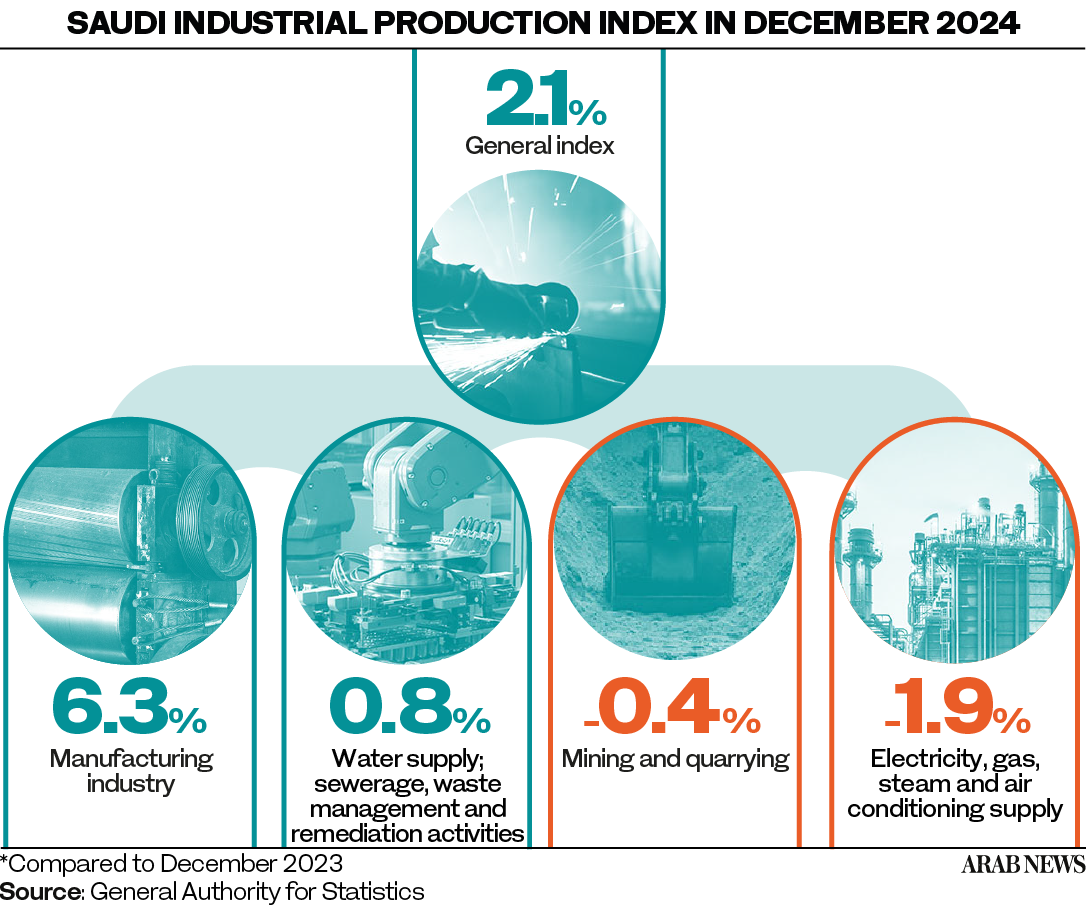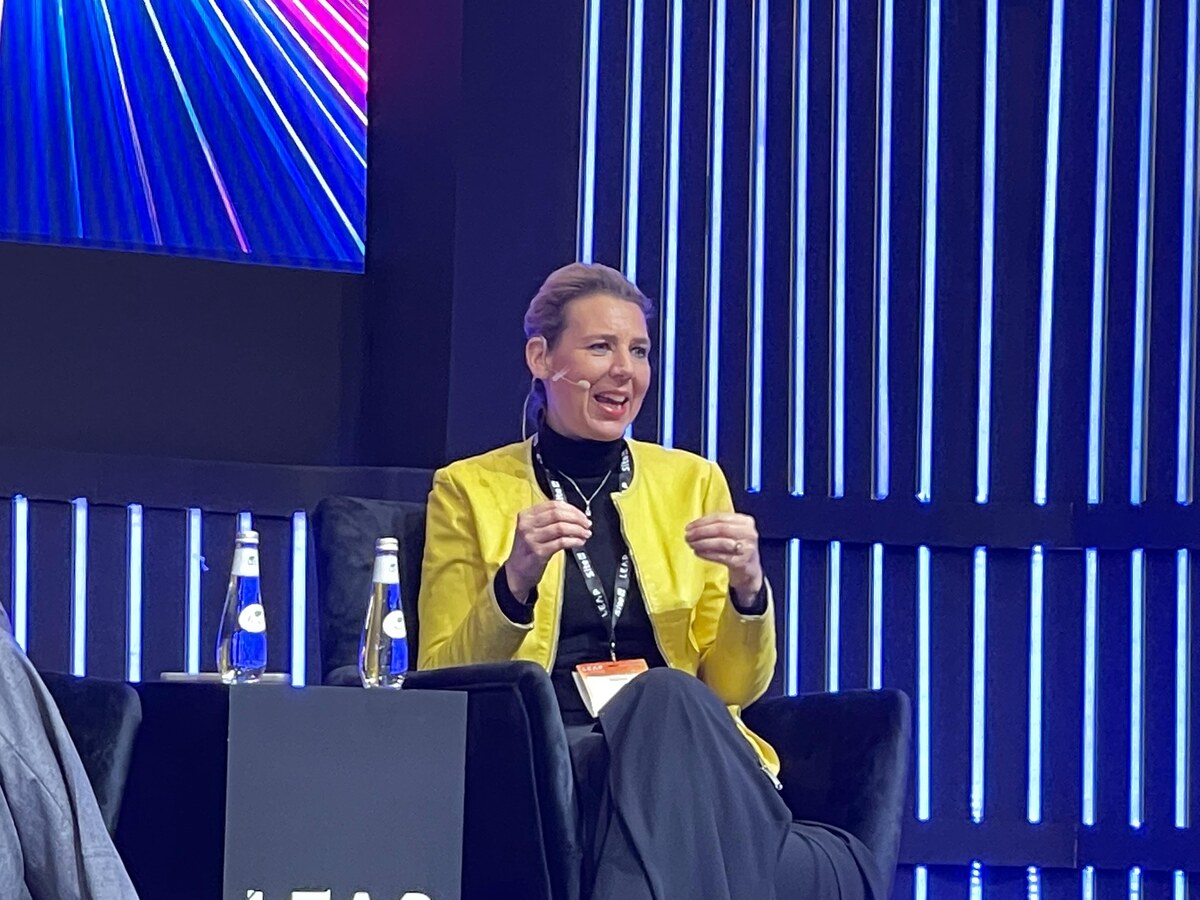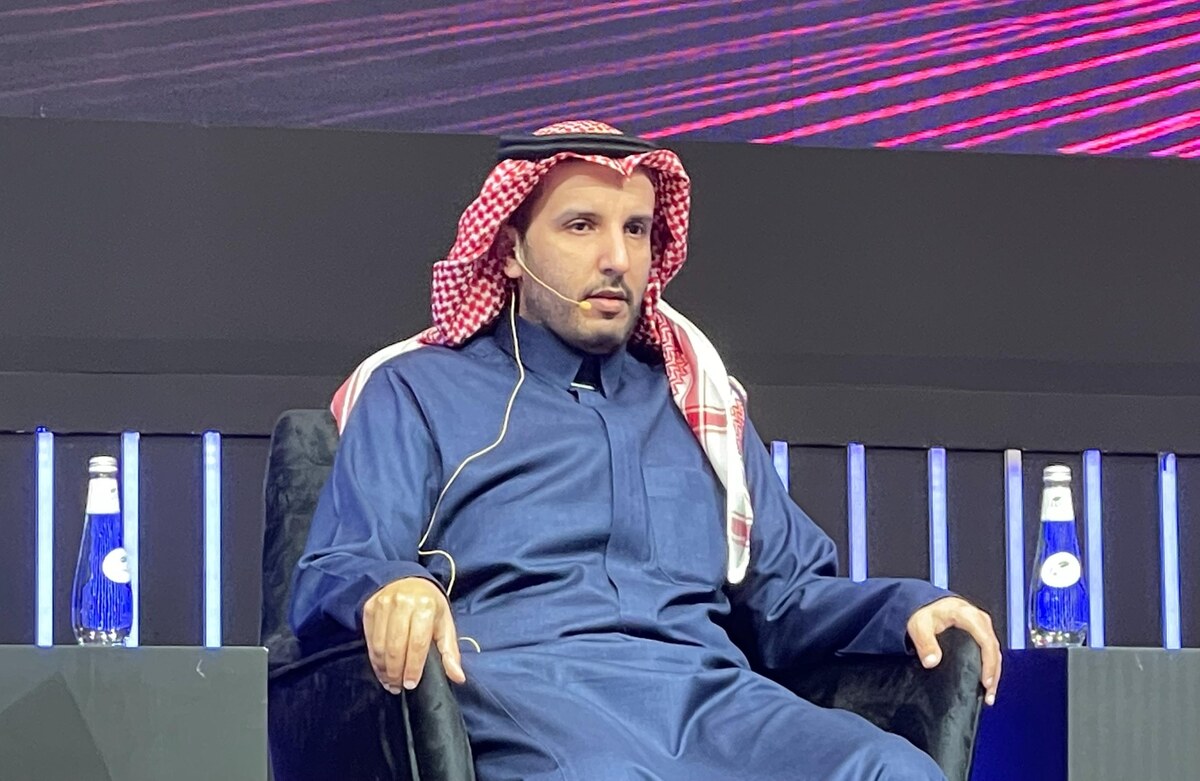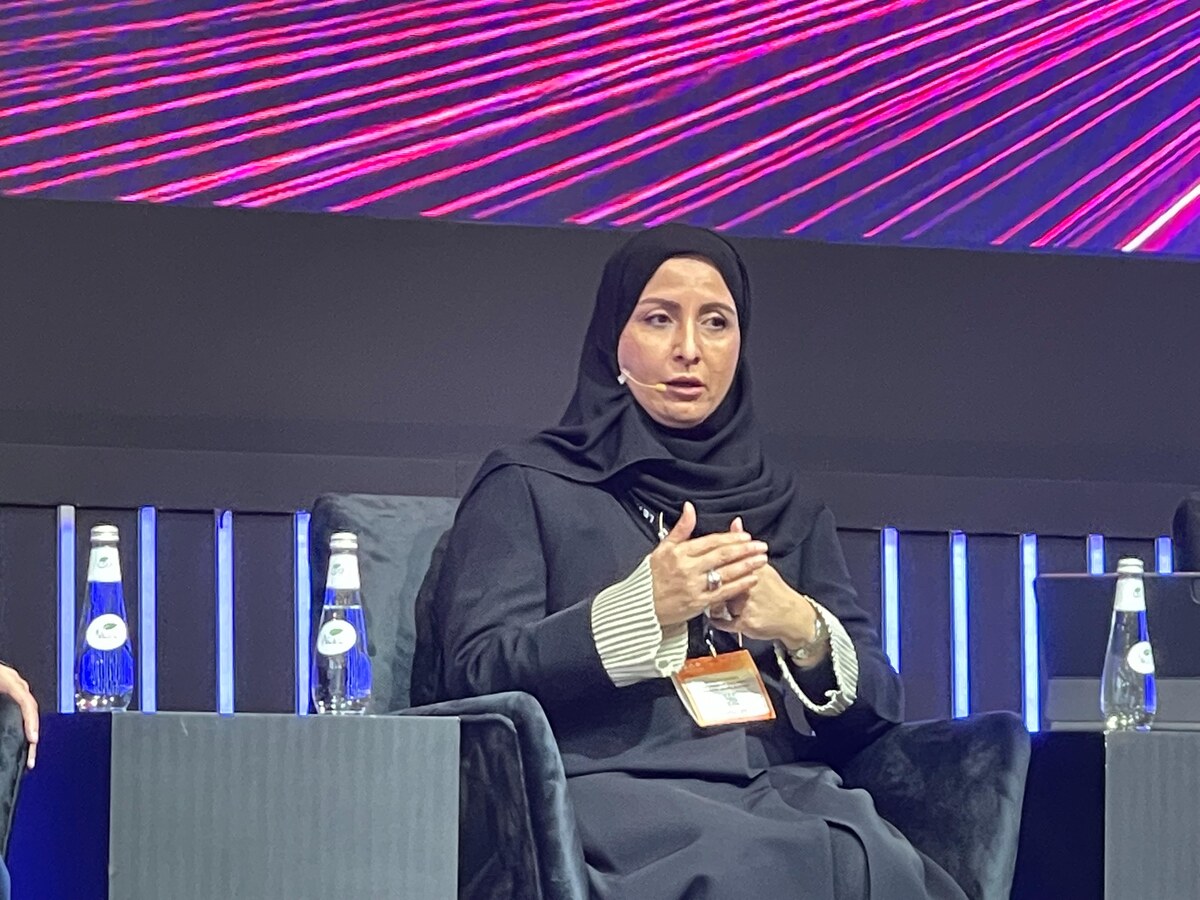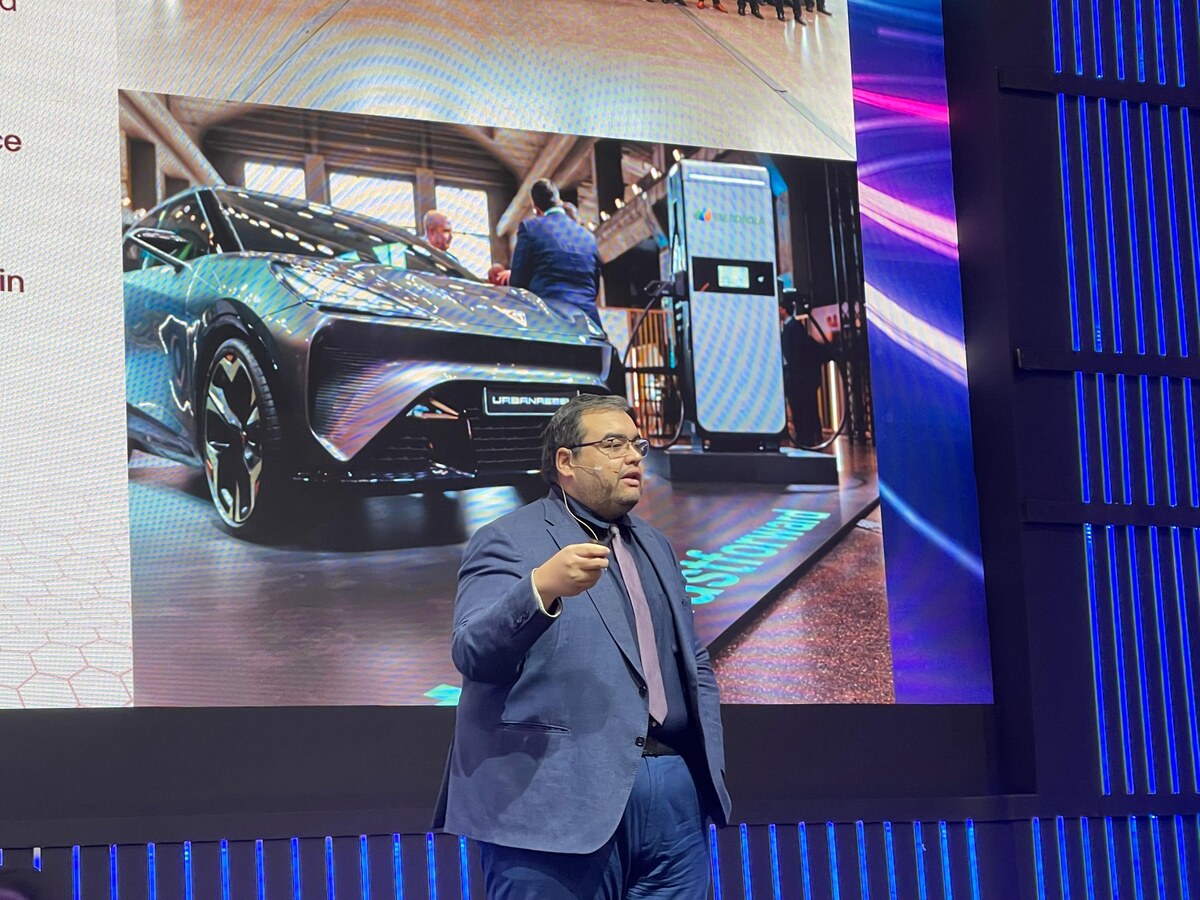RIYADH: Saudi Arabia’s workforce is experiencing a surge in female participation, driven by improved educational opportunities, declining fertility rates and a more inclusive cultural environment.
These developments have propelled the Kingdom beyond its Vision 2030 targets, according to a recent S&P Global report.
Both the government and private sector have implemented proactive measures, including legal reforms and diversity initiatives, to empower women and foster a more inclusive work environment.
This aligns with Saudi Arabia’s strategic goals to promote gender equality and encourage greater female participation in the workforce.
It comes as the Gulf Cooperation Council experiences unprecedented momentum in women’s participation in the workforce.
According to the latest figures from the World Bank, the female labor force participation rate in Saudi Arabia stands at 34.5 percent, compared to 79.9 percent for males.
Anne-Laure Malauzat, a partner at Bain & Co. in the Middle East, told Arab News that the statistic has surpassed the original target of 30 percent, prompting the Kingdom to set a new goal of 40 percent by 2030.
She highlighted several efforts in the Kingdom aimed at boosting female employment.
“On the governmental side, some examples include the Vision 2030 in Saudi Arabia — out of its 11 Vision Realization Programs, two of them are heavily focused on empowering women, namely the Human Capability Development Program and the Quality of Life Program, and female participation in the workforce is a critical enabler to the success of the other 9 programs,” Malauzat said.
Red Sea Global Spokesperson Zainab Hamidaddin Al-Hanoof Al-Hazzani said that the Kingdom surpassed its 30 percent female workforce participation target ahead of schedule.
“At Red Sea Global, we recognize the importance of promoting gender diversity in the workforce and have made significant efforts to leverage the growing trend of women entering the workforce,” she added.
The firm takes pride in having women across all levels of the organization and within the destination, including in senior executive roles, Al-Hazzani said.
“Women contribute significantly across all departments at Red Sea Global, spanning from master planning and construction to scientific research. In certain departments, female representation reaches as high as 44 percent, surpassing the company’s average.”
Laila Kuznezov, director of implementation practice at Oliver Wyman, cited S&P Global Rating’s projection that if the existing rate of growth in female workforce participation continues, Saudi Arabia’s economy could receive a boost of $39 billion, or 3.5 percent, by 2032.
She added that the Kingdom has implemented a series of initiatives to empower women, including raising awareness about the importance of female participation in the workforce, penalizing discrimination, improving job matching, and offering training and support programs specifically aimed at women.
Kuznezov highlighted how Saudi Arabia is committed to fostering a more diverse and inclusive work environment, acknowledging that tapping into the full potential of its workforce is crucial for reaching its ambitious goals.
“Women are increasingly entering the workforce at all levels, including in high-skilled and traditionally male-dominated sectors like engineering and finance,” she said.
“The government also recognizes the importance of family life and has implemented measures to support women’s professional growth alongside their family responsibilities. This includes initiatives like promoting flexible working arrangements and providing expanded childcare options.”
Beyond legal reforms, the government has led awareness campaigns designed to shift societal attitudes, Kuznezov added.
These initiatives highlight the accomplishments of prominent Saudi women, showcasing them as role models and fostering conversations about the benefits of enhancing female participation in the workforce.
“With this comprehensive approach, Saudi Arabia is paving the way for a future where women can actively participate and thrive in all sectors of the economy,” Kuznezov said.
She added that organizations like the Badir Program for Technological Entrepreneurs offer essential training and mentorship for Saudi women entrepreneurs in the tourism and hospitality sectors.
These programs are designed to equip women with the skills necessary to start and run their own businesses, thereby nurturing a culture of entrepreneurship within these industries.
“However, it’s important to recognize that Saudi women are well prepared to enter the workforce. They boast a high level of education across a range of qualifications. To fully unlock their potential, a focus on job creation is crucial, particularly within the private sector,” Kuznezov said.
As it stands, 20 percent of women are over-educated for the positions they hold, compared to 14 percent of men, she added. “The availability of a highly educated and motivated workforce is a strong foundation for the creation of more high-quality and productive employment opportunities.”
Kuznezov highlighted the importance of empowering women to assume leadership and managerial roles, which are expected to become more prevalent in high-growth sectors such as tourism and hospitality.
“By facilitating these advancements, we can ensure that women’s skills and talents are fully utilized, contributing significantly to the Kingdom’s economic diversification and overall success,” she said.
From RSG’s perspective, the goal is to see Saudi women take on leadership roles and drive a more inclusive society, particularly within the tourism and hospitality sectors.
“We’re dedicated to fostering opportunities for women in these fields. To achieve this vision, we’ve implemented various programs and initiatives aimed at attracting, retaining and promoting female talent within our organization,” Al-Hazzani said.
The spokesperson added that RSG prioritizes fairness in its recruitment processes by using gender-neutral job advertisements and ensuring diverse candidate pools.
The company has launched several programs, including the Red Sea Vocational Training Program and The Red Sea Pioneers Vocational Training Program, to provide training and employment opportunities for Saudis in the tourism sector, she said.
“Additionally, our partnership with the University of Prince Mugrin and Ecole Hotellerie de Lausanne in Switzerland ensures that young Saudis receive world-class education in hospitality. While these schemes are for men and women, we expect young Saudi women to benefit greatly given tourism, traditionally, is a sector that women over-index in.”
RSG acknowledges that increasing the number of women in the workforce is only part of the effort, Al-Hazzani said. The company is also focused on nurturing women’s professional development through various avenues, including training, mentorship and leadership programs.
“Our Female Leadership Program is designed to fortify the presence of women in leadership positions within our organization, equipping them with the necessary skills to thrive in traditionally male-dominated roles globally over the long term.”










